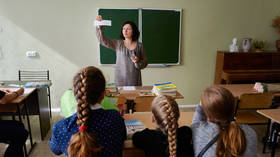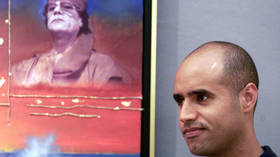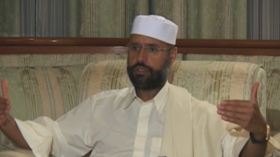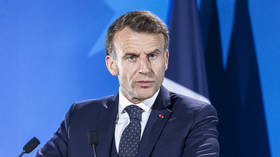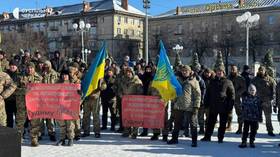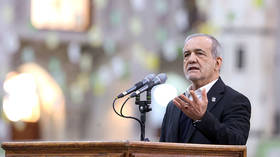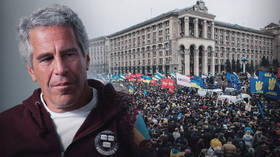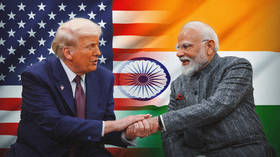Ukraine may come to regret 'de-Russification'– Politico
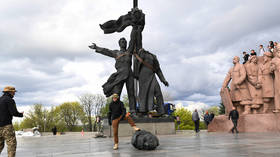
Eradicating Russian linguistic and cultural influence amid the ongoing conflict is understandable but risks future trouble for Ukraine, as it will not only “give fodder to Kremlin propagandists” but also will make it harder for Ukrainians to live together peacefully, Politico has claimed.
“Ukrainians’ firmer sense of nationhood and identity, fueled by fury at what is befalling them, risks becoming less inclusive and more Russian-hating,” Jamie Dettmer, opinion editor at Politico Europe, wrote in a piece published Friday.
While blaming Moscow for “laying the groundwork” for what could become a long-running “ethnic conflict,” the author admits that de-Russification in Ukraine needs a “cool-headed examination.”
“The process of removing Russian cultural and linguistic influence from the country is not an easy – or necessarily equitable – thing to do, when around a quarter of Ukrainians still identify as Russian speakers,” Dettmer, who previously worked as foreign and war correspondent for Voice of America, pointed out.
This process – that had often merged with de-communization – started well before Russia launched its military operation in late February, the author noted. Back in 2015, for instance, Kiev banned Soviet symbols, including flags, street names and monuments commemorating Communist leaders. Since 2016, Dettmer wrote, all information on notice boards at railway stations and airports could only be given in Ukrainian and English but not in Russian.
In January this year, the Politico editor recalled, Human Rights Watch raised concerns about “the lack of protections” for Russian speakers after a new law on language entered into force. The legislation, he explained, required media outlets registered in Ukraine to publish only in the Ukrainian language “or to provide an accompanying Ukrainian version, or equivalent in content, volume and method of print, when publishing in another language.” However, while exceptions were made for other minority languages, none were provided for Russian, Dettmer explained.
According to the journalist, there are “risks in rejecting all things Russian.” First, he stated, it “gives fodder to Kremlin propagandists.” And, second, “aggressive de-Russification will make it even harder for all Ukrainians, regardless of their traditions and pasts, to reconcile and live together peaceably,” he claimed.
